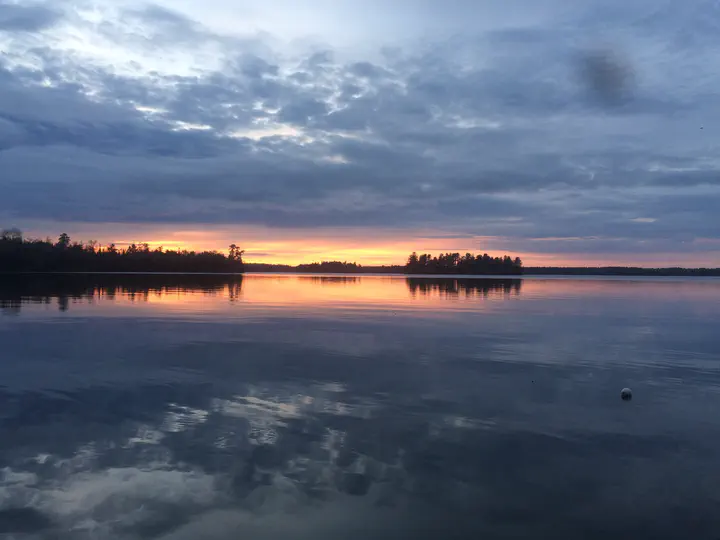Walleye Fisheries Bright Spots in a Changing Climate
 Q. Smith
Q. SmithPrincipal Investigator : Holly Embke
Co-Investigators : Zach Feiner, Gretchen Hansen, Daniel Isermann, Jake Vander Zanden
Habitat loss, pollution, species introductions, and overfishing have been impacting inland fisheries for decades. Climate change threatens to compound the factors that lead to fisheries decline. Walleye, an ecologically, economically and culturally important cool-water sportfish, have been declining in the Upper Great Lakes Region since the early 2000s. Yet while many inland walleye populations have declined, others have thrived, and some even appear to respond positively to warming temperatures in certain contexts (e.g. Honsey et al 2020). Rather than focusing on understanding walleye population declines, this project’s approach is to probe the factors that underlie successful, thriving fisheries. Focusing on ‘bright spots’ and examples of ’success’ tends to highlight innovations, social context, and the possibility of more effective fisheries management in the face of environmental change.
The research team will combine a suite of different approaches to provide new insights into walleye fishery bright spots: firstly, an ongoing whole-lake experimental removal of basses and sunfishes. Secondly, the team will carry out observational studies of habitat use and write a synthesis of how walleye fisheries responded to management restoration efforts. Finally, the team will create a statistical analysis aimed at detecting walleye fishery bright spots. Members of the research team will work in partnership with state (MI, MN, WI) and tribal (Great Lakes Indian Fish and Wildlife Commission) biologists. Combining the results of these multiple approaches will yield new insights in what makes for a successful walleye fishery and will generate knowledge that will inform climate-smart fisheries management given that already-stressed fisheries are increasingly subject to a rapidly changing climate.